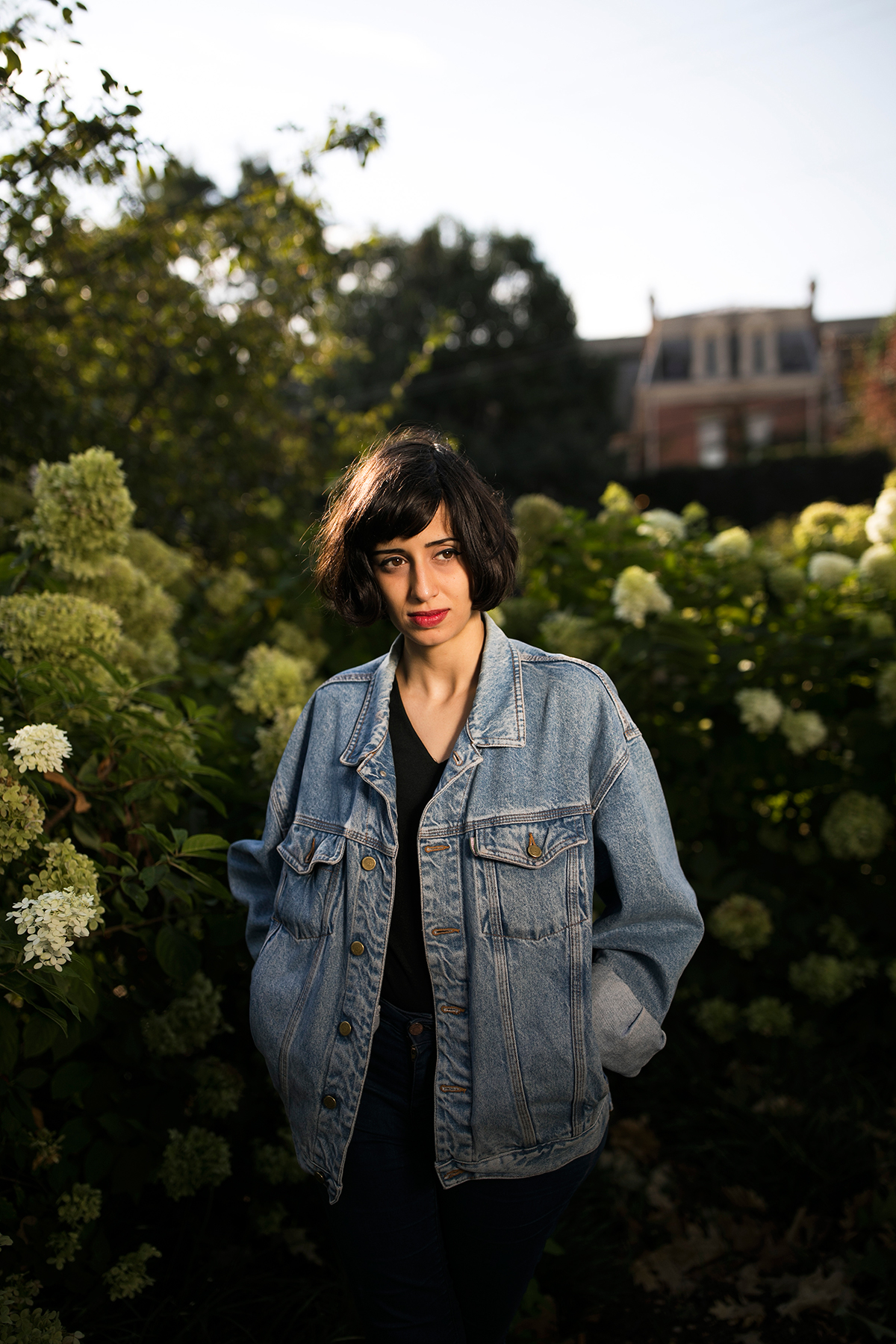In one of the first self-portraits Zainab Fasiki shared publicly, she is standing vigil over the city—giant, green, naked. Fasiki, 25, says The Protector of Casablanca was a way to fight against daily street harassment. “I wanted to say, I’m done with all this, and I’ll draw what I want. The message is: look, this is me trying to protect the city. I’m here and I can change some things.”
That defiance characterizes much of the work in Fasiki’s new graphic novel, Hshouma, published in French and Arabic editions in September. The book, whose title roughly translates as “shame,” pairs the artist’s playful illustrations with discussions of sexuality, gender-based violence and censorship. “I want every Moroccan to read it because we have nothing on these topics at school or at home,” she says. “It’s a kind of guidebook.”

When Fasiki first left her conservative hometown of Fez for college in the coastal city of Casablanca, she thought life would get easier. But catcalling was a daily challenge, and for the handful of female students in the same mechanical-engineering degree program as Fasiki, bullying was common. After a man tried to snatch her bag in the city center last year, Fasiki, who has been drawing since the age of 4, was inspired to publish many of the illustrations she had kept private—some featuring nude women.
Fasiki’s conservative critics say her images are degrading. But she wants to draw attention to society’s obsession with how women present themselves. “I’m trying to say you can see a naked woman and you can find it normal. It has nothing to do with sex. It’s just a body.”
Fasiki has started several projects to raise awareness about gender discrimination in Morocco. An October 2018 collaboration with the U.N. Refugee Agency animates the journey of four refugees from Sub-Saharan Africa, including a woman subjected to female genital mutilation. A mentorship program she launched in early 2018 helps prepare 20 female artists each month to navigate exploitation in Morocco’s art industry, which Fasiki says she encountered at the beginning of her career.
Inspired by Egyptian feminist Nawal El Saadawi and French-Iranian graphic novelist Marjane Satrapi, Fasiki is also countering Western narratives that portray the Middle East as either hypersexual or repressed . “Everyone wants you to be a certain way,” she says. “I love proving them wrong.”
- How Nayib Bukele’s ‘Iron Fist’ Has Transformed El Salvador
- What Makes a Friendship Last Forever?
- How to Read Political Polls Like a Pro
- Long COVID Looks Different in Kids
- What a $129 Frying Pan Says About America’s Eating Habits
- How ‘Friendshoring’ Made Southeast Asia Pivotal to the AI Revolution
- Column: Your Cynicism Isn’t Helping Anybody
- The 32 Most Anticipated Books of Fall 2024